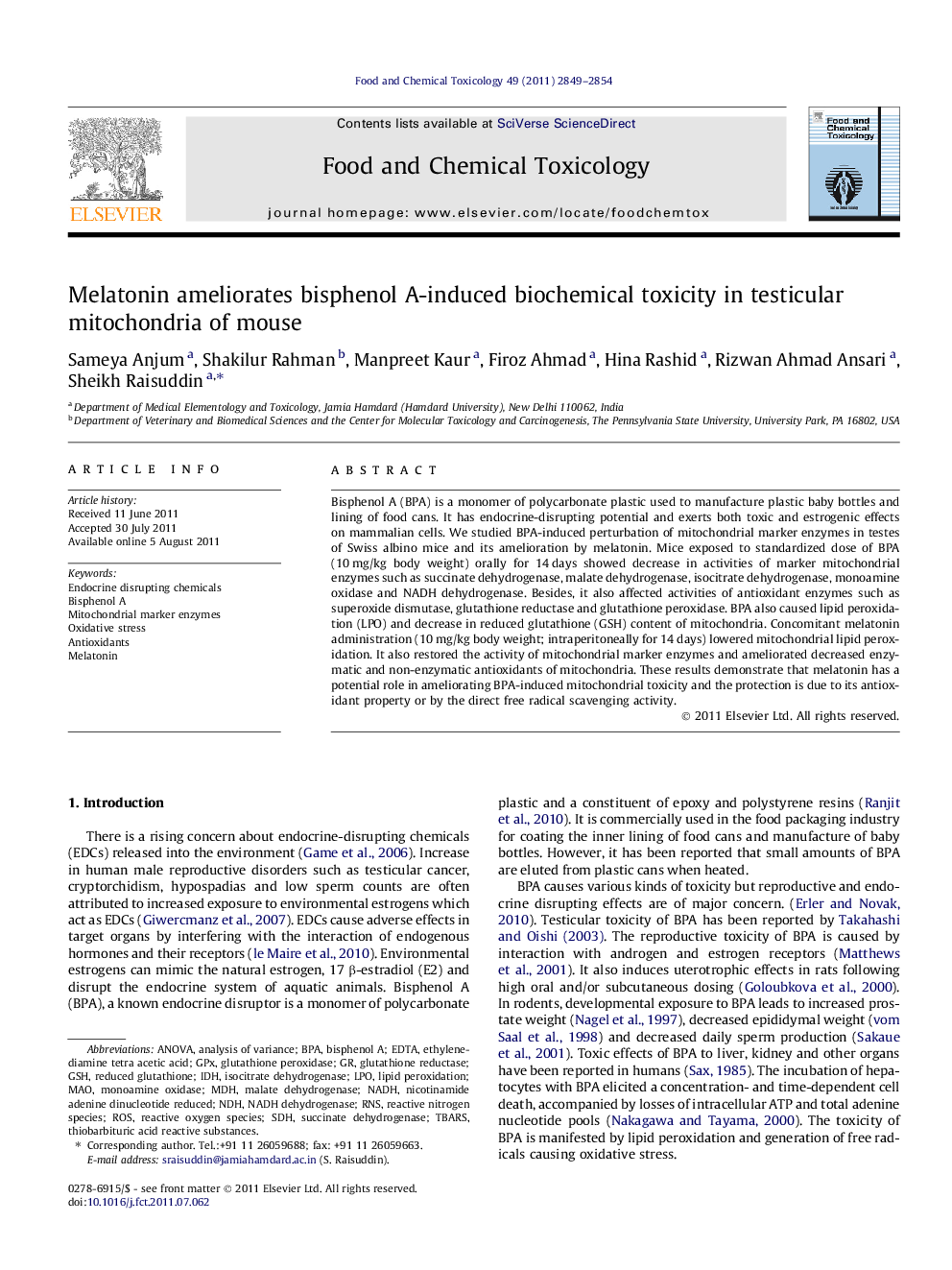| Article ID | Journal | Published Year | Pages | File Type |
|---|---|---|---|---|
| 5853736 | Food and Chemical Toxicology | 2011 | 6 Pages |
Bisphenol A (BPA) is a monomer of polycarbonate plastic used to manufacture plastic baby bottles and lining of food cans. It has endocrine-disrupting potential and exerts both toxic and estrogenic effects on mammalian cells. We studied BPA-induced perturbation of mitochondrial marker enzymes in testes of Swiss albino mice and its amelioration by melatonin. Mice exposed to standardized dose of BPA (10Â mg/kg body weight) orally for 14Â days showed decrease in activities of marker mitochondrial enzymes such as succinate dehydrogenase, malate dehydrogenase, isocitrate dehydrogenase, monoamine oxidase and NADH dehydrogenase. Besides, it also affected activities of antioxidant enzymes such as superoxide dismutase, glutathione reductase and glutathione peroxidase. BPA also caused lipid peroxidation (LPO) and decrease in reduced glutathione (GSH) content of mitochondria. Concomitant melatonin administration (10Â mg/kg body weight; intraperitoneally for 14Â days) lowered mitochondrial lipid peroxidation. It also restored the activity of mitochondrial marker enzymes and ameliorated decreased enzymatic and non-enzymatic antioxidants of mitochondria. These results demonstrate that melatonin has a potential role in ameliorating BPA-induced mitochondrial toxicity and the protection is due to its antioxidant property or by the direct free radical scavenging activity.
⺠Bisphenol A affects vital enzymes of testicular mitochondria and its antioxidants. ⺠Increased lipid peroxidation shows vulnerability of mitochondrial membrane to bisphenol A. ⺠Melatonin, a known antioxidant protects mitochondria from bisphenol A toxicity. ⺠Melatonin restores activities of viral antioxidant and marker mitochondrial enzymes.
